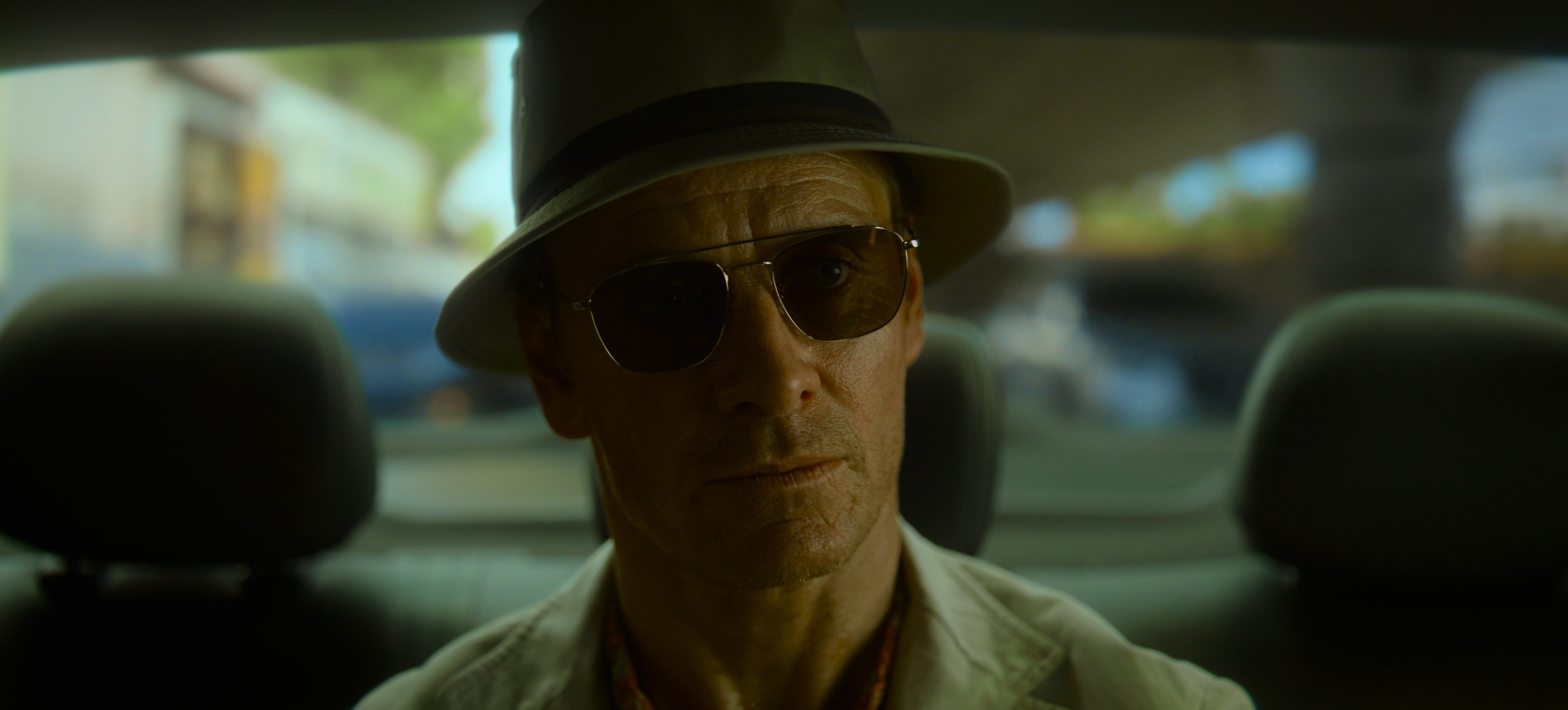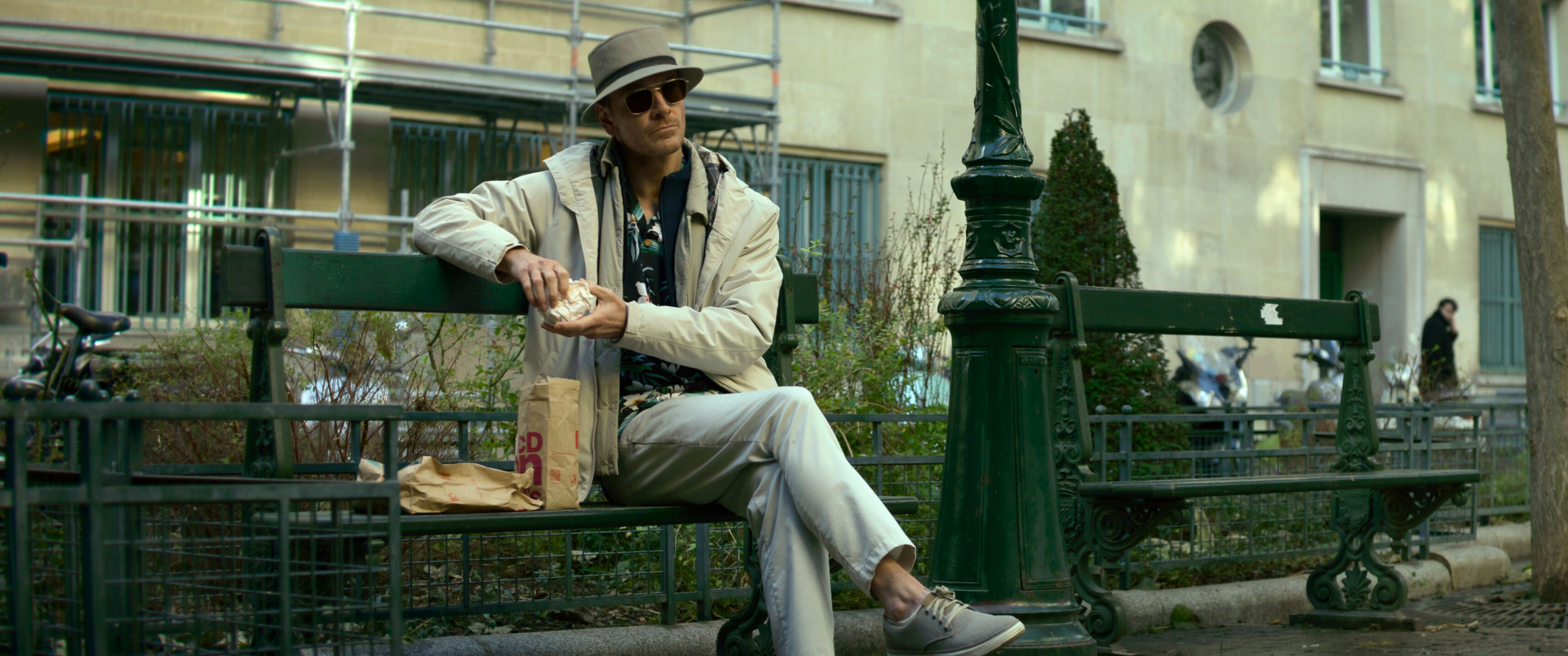Netflix’s thriller film ‘The Killer‘ ends with a highly ambiguous decision the titular assassin makes concerning the fate of Claybourne, the billionaire hedge fund manager who finances a hit that ends up hurting the former’s girlfriend. Claybourne finances the hit after the killer fails to fulfill the mission he assigns for the latter through Edward Hodges, the assassin’s handler. To exact his vengeance, the killer tracks down the Brute and the Expert, the two assassins who hurt his girlfriend and kills them.
The killer then moves to his next target, Claybourne, and gets into his well-guarded house to exact his vengeance for nearly killing his girlfriend Magdala. He has time and again shown that he is nothing but a cold-blooded murderer without any sense of empathy, which enables him to kill several people who have come his way, ranging from the taxi driver to the two assassins who hurt his partner. But, after a conversation with Claybourne, the killer walks away from his house, sparing the latter’s life, with just a warning. There could be two theories on why he made the choice not to kill the man who started it all.
Theory 1: Claybourne is Irrelevant

Although Claybourne finances the hit against Magdala, he is barely involved in the same. When the killer misses his target, the businessman tries to find out how to deal with the predicament, only to get advised to remove his tracks. Hodges decides to turn against the killer to ensure his client’s safety. As someone who is clueless about how the world of crime operates, Claybourne nods yes to Hodges’ proposal without any malicious intent against Magdala. As far as Claybourne is concerned, he would have nodded yes to anything Hodges presents in front of him as the ideal step forward.
The killer learns about Claybourne’s ignorance after a quick chat with him after entering the businessman’s house to kill him. Even after seeing a stranger with a gun inside his well-safeguarded house, Claybourne doesn’t connect the former to the hit he orders against him, which makes his ignorance evident regarding what happened to the latter. The businessman isn’t even aware that the killer’s partner would be hurt since he pays to “scrub the trail” without understanding or learning what it even means. All he is told is that there will be a “cleanup on aisle three.”
The killer soon gets convinced that Claybourne is not directly responsible for what happened to Magdala. He grasps the businessman’s cluelessness as he asks himself why the latter hasn’t even identified him. “I break into your home, in the middle of the night with a silenced pistol, and you have no idea why I might be here?” the killer asks the businessman as he finally grasps the latter’s irrelevance. Since Claybourn doesn’t know how Hodges dealt with the predicament after the killer’s miss, he doesn’t expect the latter to track him down and point a gun at him. In his understanding, he hasn’t done anything offensive for the person he hired to appear before him, which isn’t the case with the others involved in the predicament.
Whether it be Hodges or the two assassins, they identify the killer right after the latter appears before them. They know that they did something for the killer to retaliate, which makes it clear why they recognize him even before a word is spoken between them. In Claybourne’s case, the only crime he does in his mind is the assignment he gives to the killer. When Hodges promises to resolve the issues concerning the same, he believes the lawyer’s words and moves on since he hasn’t done anything else to expect an assassin to show up in his house. When the killer perceives who really is responsible for what his partner had to suffer, he chooses to spare Claybourne.
Having said that, Claybourne’s irrelevance could not be the only reason why the killer spares the businessman. If that’s the case, the killer shouldn’t have murdered the taxi driver, who is unaware of the two assassins’ plans to kill someone, or Dolores, who has been merely working for the lawyer. The killer is not an empathetic person who differentiates rights and wrongs and leads a virtuous life. If he is considerate, he would have let at least the taxi driver live, especially considering that he is a nobody to emerge as a threat. So, why does only Claybourne get forgiven?
Theory 2: Retirement on the Horizon
The killer spares Claybourne most likely because he is an incredibly wealthy and influential businessman. Unlike the taxi driver or Dolores, the billionaire’s murder would pave the way for a major investigation into the death, which will cause additional troubles for the killer to deal with. The killer meets Claybourne after deciding to retire as an assassin. He must have gotten convinced that he needs a peaceful life with his girlfriend Magdala, which seemingly makes him put an end to his career as a cold-blooded murderer. When she gets nearly killed, the killer must have understood that he cannot continue doing his job anymore.

The relationship with Magdala becomes a priority for the killer, which is why he runs to her after a mission goes wrong, even when he is expected to start a new chapter of his life using a different identity. He wants to return to her after completing his vengeful murder spree and killing Claybourne may jeopardize his wish. If he kills the businessman, he may get forced to be on the run, which will distance him from his partner and the calmness he wants to experience with her. Since he doesn’t have anything to gain from killing Claybourne, who is not even completely responsible for Magdala’s near-death experience, the killer chooses retirement over the businessman’s murder.
While tracking down Claybourne, the killer observes that it is easier to track down or find rich people, obviously because of their fame and exposure. Due to the same factors, Claybourne’s murder will cause a stir for a long period, which will affect the killer’s plans for the future. He is able to confidently kill the two assassins, the taxi driver, Dolores, and Hodges, because he knows that their deaths/murders will fall into oblivion sooner than later, which will not be the case with Claybourne’s murder. Therefore, the killer lets the businessman live and leaves for the Dominican Republic to cherish his retirement with his partner.


You must be logged in to post a comment.